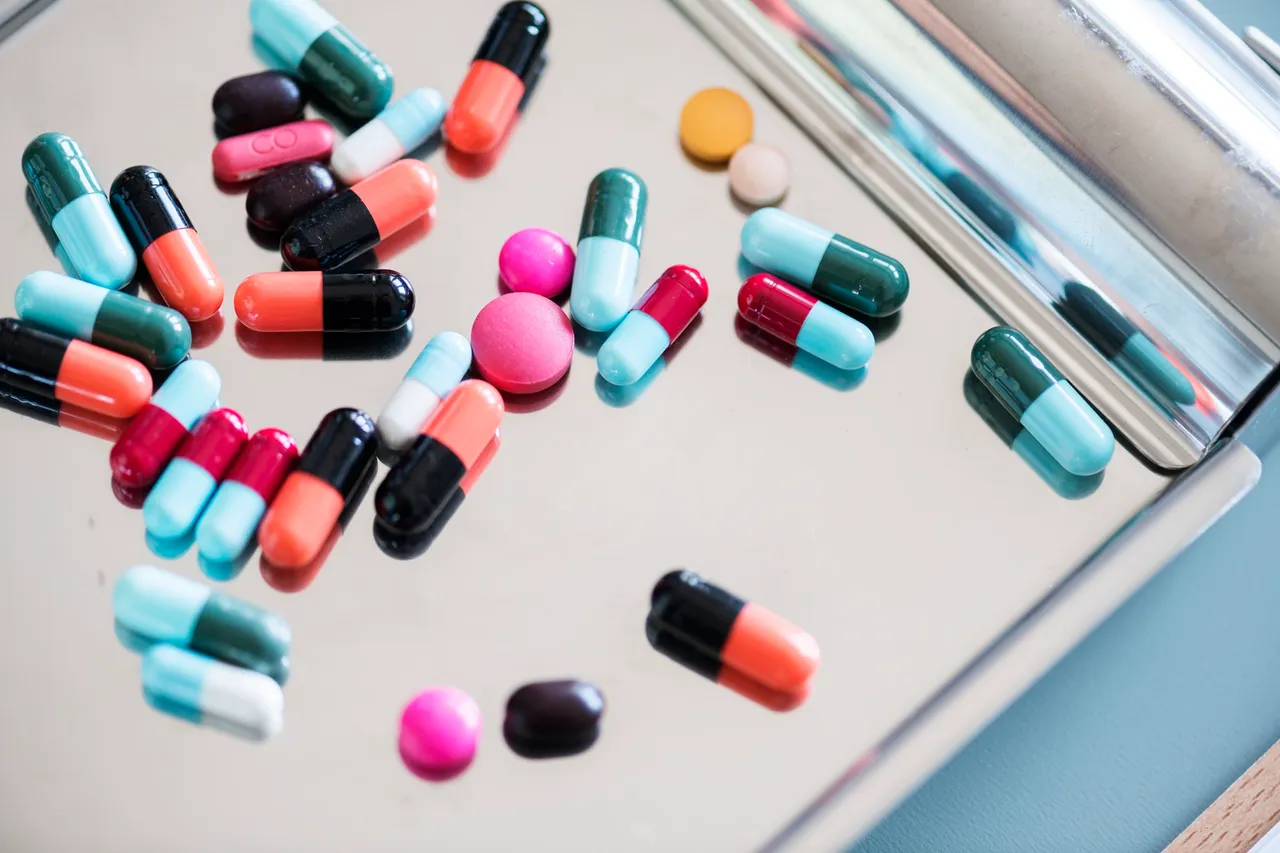
MDMA: Treatments and Risks
MDMA, commonly referred to as Ecstasy or Molly, is a compound with an interesting history, pharmacology, and range of clinical and recreational use cases. This potent chemical has some unique psychological effects which often make for a profound experience. Many people who have tried MDMA have described the experience as being life changing for the better, often giving the users a profound sense of inter-connectedness with the world, and feelings of a deep bond with the people around them.
Neuroscientist and author, Sam Harris, has described the profound effects that his experience had on him and the way he viewed the world the world in his book Waking Up (2014). For these properties, MDMA was used by psychiatrists for treating various psychological issues, often in combination with cognitive or behavioral therapy. Following therapeutic use in the 1970's, the drug became popular in clubs and parties in the 80's before becoming a schedule 1 drug in the United States. Despite the evident effectiveness of treating a variety of psychological conditions, clinical research and treatment was regarded as dangerous and illegitimate. Now, research is beginning to be conducted again, as studies provide promising data for is use in treating PTSD, depression, anxiety, addition, and more.
This compound has been shown to be neurotoxic, and even psychologically harmful when abused, but has extreme potential to help a wide range of people if used in the proper context and dosage. Further, music festival and party goers "looking for Molly" are commonly sold other substances (such as amphetamines, cathinones, or a variety of research chemicals). It is important that MDMA is properly studied, administered, and controlled.
MAPS: Research and Regulations
Rick Doblin, the founder of the Multidisciplinary Association for Psychedelic Studies (MAPS), has done incredible work to educate people about MDMA and other psychedelic drugs. MAPS does clinical research and works with regulators like the FDA and the European regulatory authority, EMA, with the goal to make MDMA a valid medication. You can watch his appearance on The London Real below, to learn about the project, its recent work, and more about regulatory hurdles.

Treatment for PTSD
In my previous post, PTSD: The Psychology and Neurology of Trauma and Psychedelic Treatments, I touched on some of the exciting results that suggest hallucinogens may be effective treatment options for people who suffer from PTSD. Studies for LSD and Psilocybin (Shroder, 2014), DMT (Nielson & Megler, 2014), Ketamine (Dang et al., 2014), and MDMA (Doblin, 2002) overwhelming lead researchers to believe that such compounds can offer safe, reliable, and effective results after only a single or couple of interventions.
This is especially significant considering that there are very few effective treatments available to the ~24.4 million patients in the United States of America (According to the National Institutes of Health, Department of Veteran Affairs). Billions of dollars are spent every year on medication that does little or nothing to help these individuals, who often rely on disability checks and strong opioids to cope.
Patients with post-traumatic stress disorder (PTSD) who fail to respond to established treatments are at risk for chronic disability and distress. Although treatment-resistant PTSD (TR-PTSD) is a common clinical problem.
-Dunlop et al., 2014
Now, MDMA is finally being recognized as a powerful tool to help this growing problem.
- The Promise of Ecstasy for PTSD - The New York Times
- FDA Designates MDMA As 'Breakthrough Therapy' For Post-Traumatic Stress - Fobes
- Using Ecstasy to treat PTSD: ‘I felt like my soul snapped back into place’ - PBS
- ‘My therapist gave me a pill’: can MDMA help cure trauma? - The Guardian
Beyond PTSD, MDMA has a plethora of potential use cases including depression, anxiety, and addiction. See MDMA in the news for treatment of depression:
- How a party drug could become the next blockbuster antidepression treatment - CNBC
- Can MDMA help to cure depression? - The Guardian
- Could MDMA Be the Cure for PTSD and Depression? - Medical Daily

Dangers of MDMA
Despite its many potential uses and promising research, MDMA is certainly no miracle drug. There are certainly drawbacks associated with MDMA. Most notably, studies show that it causes deleterious effects on serotonergic neurons which can cause transporter imbalance and cell death. Other research suspects that MDMA could cause cardiovascular and gastrointestinal problems, especially after chronic use. MDMA also engages the oxytocin system, and can cause significant neural plasticity McGregor & Bowen, 2012.
Perhaps more dangerous than the drug directly causes, is the degree to which it is laced, or entirely other substances. Meth, bath salts, and blends of other obscure amphetamines are commonly sold as "Molly" at concerts, raves, and festivals around the world. There is a high demand for MDMA at social events; however, DanceSafe, a nonprofit focused on reducing harm at concerts and clubs and educating people on recreational drugs, found that many of these party goers did not get what they payed for.
"Over the course of the study, 529 samples believed to be MDMA were tested. Only 318—or just over 60 percent—were found to contain MDMA (or the closely related MDA). The adulterants were identifiable in only 90 of the 211 samples that did not contain MDMA, which means that the contents of 121 of the 529 samples—almost a quarter—were not recognizable. The most common identifiable adulterants were bath salts."
-Newsweek article. Ryan Bort, 7/11/17.
There is a well done documentary, What's In My Baggie?, which investigates the substances sold at music festivals in 2014:

Overall, I think that MDMA has exciting potential to be used as a helpful tool in helping people deal with stress, trauma, depression, fear, or addiction. It should be used by individuals who are educated about its physical and cognitive affects, in a safe context conducive to internal investigation (be that a clinical, meditative, or therapeutic setting). It should be used with a goal over learning something about ones self or world, or for possibly some people at high risk of suicide. This drug is neurotoxic, and should not be abused.
Thanks so much for reading. Feedback is always welcomed and appreciated. If you enjoyed this, please like, comment, and follow, to help enable me to continue creating this type of content. If you have any suggestions or requests for topics, please let me know!

Recent Articles:
- Molecules to Mental States: Psychological Stress and Cell Death
- Is Your Brain Too Excited?! Neurodegeneration By Over-Stimulation
- Manipulating Memories: Instantly Eliminate a Fear
- GMOs: Addressing Environmental and Health Concerns
- Neural Plasticity: Shaping How We View Ourselves
References
- Cohen, Richard S. "Subjective reports on the effects of the MDMA (" ecstasy") experience in humans." Progress in neuro-psychopharmacology & biological psychiatry (1995).
- Commins, D. L., et al. "Biochemical and histological evidence that methylenedioxymethylamphetamine (MDMA) is toxic to neurons in the rat brain." Journal of Pharmacology and Experimental Therapeutics 241.1 (1987): 338-345.
- Dowling, Graeme P., E. T. McDonough, and R. O. Bost. "A report of five deaths associated with the use of MDEA and MDMA." Jama 257 (1987): 1615-1617.
- Dunlop, Boadie W., et al. "Assessing treatment-resistant posttraumatic stress disorder: The Emory treatment resistance interview for PTSD (E-TRIP)." Behavioral Sciences 4.4 (2014): 511-527.
- Green, A. Richard, et al. "The pharmacology and clinical pharmacology of 3, 4-methylenedioxymethamphetamine (MDMA,“ecstasy”)." Pharmacological reviews 55.3 (2003): 463-508.
- McCann, Una D., et al. "Positron emission tomographic evidence of toxic effect of MDMA (“Ecstasy”) on brain serotonin neurons in human beings." The Lancet 352.9138 (1998): 1433-1437.
- McGregor, Iain S., and Michael T. Bowen. "Breaking the loop: oxytocin as a potential treatment for drug addiction." Hormones and behavior 61.3 (2012): 331-339.
- Rudnick, Gary, and Stephen C. Wall. "The molecular mechanism of" ecstasy"[3, 4-methylenedioxy-methamphetamine (MDMA)]: serotonin transporters are targets for MDMA-induced serotonin release." Proceedings of the National Academy of Sciences 89.5 (1992): 1817-1821.
Images:
